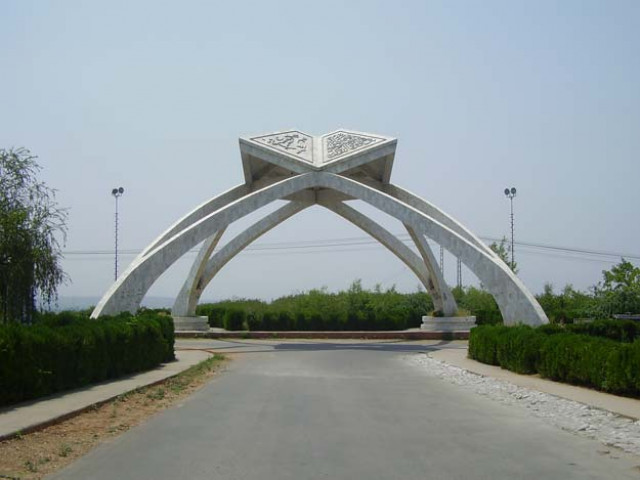Symposium held to raise awareness about inherited blood disorders
Speakers emphasise the significance of carrier screenings

Quaid-i-Azam University. PHOTO: EXPRESS
The symposium was organised by the Department of Animal Sciences, Quaid-i-Azam University (QAU) in connection with “World Hemophilia Day.”
There are more than 50,000 registered transfusion dependent thalassemia patients in Pakistan, and approximately 5,000 babies are born every year with thalassemia in the country. The number of registered hemophilic patients in Pakistan is 20,000. Patients with blood-borne disorders are heavily reliant on blood transfusions throughout their life, which not only adversely compromises their quality of life but also renders a great economic and psychological burden on the affected individuals and their families. Due to the complications arising from blood transfusion and disease management, the mortality of such patients is quite high. The average life expectancy for thalassemic children in Pakistan is only 15 years, compared to 60 years in developed countries.
Awareness seminar held on inherited metabolic disorders in Karachi
QAU Department of Animal Sciences, Associate Professor Dr Sajid Malik welcomed the audience. He presented an overview of the current state of research on Thalassemia and encouraged the students to donate blood with great zeal and enthusiasm.
During the seminar, Professor at Riffah Medical University Dr Tahir Chaudhary shared his experience on the treatment and management of patients with Hemophilia & Thalassemia. Institute of Biomedical & Genetic Engineering (IB&GE) Senior Scientific Officer Dr Rashda Abbasi presented an update on the diagnosis and treatment of Leukemia. Former district health officer in Peshawar Dr Attiqur-Rehman shared his experience as a volunteer medical officer at Fatimid Foundation Peshawar, catering to thallasemic and hemophilic patients for the last 20 years.
Mujtaba a student at Quaid-i-Azam School of Management Sciences (QASMS) expressed his sufferings of being a thallasemic patient and his dependency on blood transfusions since the past 23 years. As the symposium concluded, IB&GE senior scientific officer Dr Nafees Ahmad appreciated the role of Fatimid Foundation in annually providing free and safe blood transfusions to hundreds of patients with hereditary blood disorders annually.
Published in The Express Tribune, April 25th, 2018.



















COMMENTS
Comments are moderated and generally will be posted if they are on-topic and not abusive.
For more information, please see our Comments FAQ